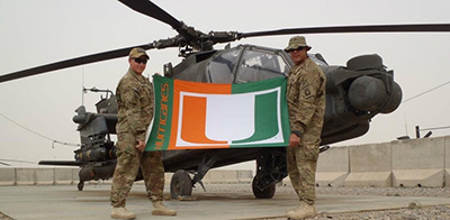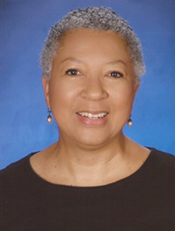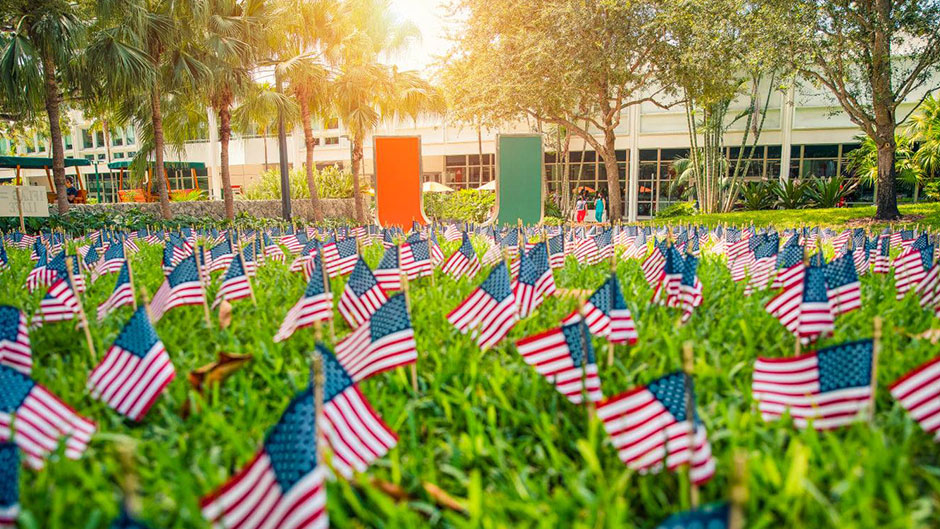One hundred years ago, on November 11, 1921, an unidentified member of the American armed forces, a casualty of World War I, was interred beneath a simple marble monument on a hill in the center of Arlington National Cemetery.
The Tomb of the Unknown Soldier, in which Unknowns from World War II and the Korean conflict were later laid to rest, and which now includes a memorial to all those missing in action, is a powerful symbol of service, sacrifice, and gratitude.
And as the country commemorates the 100th anniversary of the Tomb, we at the University of Miami Alumni Association take this opportunity to reflect on the central role of veterans in shaping our institution—and to express our gratitude for their service.
In 1945, returning servicemen helped triple the U’s enrollment to more than 6,900. Since then, the University has continued to welcome and support veterans through programs and resources that have earned it high marks in various rankings of veteran-friendly colleges.
The University participates in federal and state initiatives that help veterans, active-duty service members, and/or their dependents pay for their degrees, such as the G.I. Bill, the Yellow Ribbon Program, and the Scholarship for Children or Spouses of Deceased or Disabled Veterans. In addition, the University offers scholarships specifically geared for veterans with financial need, including the Col. Alice A. Kerr Veteran's Scholarship and the Tillman Military Scholars Program. The Hurricane Heroes Endowed Scholarship, established with a gift from Walter Penberthy, M.B.A. '91, supports graduate students in the Miami Herbert Business School who have served in the military or are disabled.
Several on-campus resources are available to help with benefits and the transition to civilian life, including Veterans’ Affairs Certifying Officials, programs at the University Counseling Center especially for students who are veterans, the Veteran Employee Resource Group, and career planning and tutoring geared for vets. The Veteran Student Organization provides support and extensive networking resources for veterans as they adapt to student life.
Our ’Cane veterans come from different backgrounds and walks of life, and while their experiences in the military differ, they all share a commitment to serving their country and making an impact in their community.
We meet three of them below.
Otto Mastrapa, student, School of Architecture

When Otto Mastrapa was in high school in Miami in the early 90s, he didn’t think of himself as college material. The son of a divorced single mother, he was also acutely aware of the financial sacrifices his mother had made to send him to private school. Thus, in 1991 he joined the Navy and was almost immediately deployed to Bahrain as part of Operation Desert Shield.
Mastrapa spent eight years in the Navy. After his discharge he worked for the Miami-Dade Public School District as an IT analyst, but the service still exerted a pull. “I wanted to go back in [the military], and my brother really wanted to be in the service so we both joined the Army,” he said.
He spent a total of 16 years in active-duty service, including tours in Iraq and Afghanistan. Throughout his time in the military, he maintained his connections to his hometown and his beloved Hurricanes. “I’ve been a ’Canes fan since I was five years old and to this day, I bleed orange and green,” he said.

After retiring from the military and despite the debilitating injuries he had suffered in Afghanistan, Mastrapa began pursuing his lifelong goal of becoming a professional architect. He excelled as a standout student at Miami Dade College, made the Dean’s list, was named architecture student of the year, and won a scholarship to attend the University of Miami School of Architecture, where he is now a fifth-year student.
When asked about his experience as a 40-something undergraduate at the U, he said, “I love it…it’s been like a dream for me. I was always used to being around young privates and mentoring them and training them, so I adjusted very quickly.”
As he looks forward to graduating next spring, Mastrapa never forgets those who inspired him. He credits his cousin, Staff Sergeant Arthur Mastrapa, who was killed in action in Iraq, and his brother, retired Army Sergeant Robert Ledee, who passed away during Mastrapa’s final semester at MDC, for serving as role models and fueling his persistence and resilience.
Jacqueline Grant, B.B.A. ’85, Ph.D. ’12

Born and raised in Jamaica, Jacqueline Grant has a special love for Miami, both the city and the university, as well as a passion for empowering others. Soon after earning her undergraduate degree in management and organization from the Miami Business School, she joined the Air Force, in which she served for five years.
During Operations Desert Shield and Desert Storm, Grant was deployed to Cairo, Egypt, as officer in charge of a Personnel Support for Contingency Operations (PERSCO) team. She and the team were responsible for processing incoming and outgoing military personnel at the base, and as team leader, Grant played a vital role as coach and mentor.
In an account of the Air Force’s role in support of Desert Shield/Storm, published in 1994, Grant wrote that the experience “taught me about my own patriotism, leadership, initiative, and creativity in problem-solving.”
Grant used her G.I. Bill benefits to return to graduate school. After earning her master’s degree, she attended the University of Miami as a McKnight Fellow, where she earned her doctorate in modern Latin American history, Caribbean history, and Atlantic world studies. Her research focused on issues of identity among people of color in Cuba, and her dissertation examined how free people of color in Havana, Matanzas, and Santiago de Cuba contested the disabilities they faced during the mid-nineteenth century in the wake of a series of slave uprisings.
In the past several years, Grant has published three nonfiction middle-school books. She currently teaches world history to ninth graders at Gulliver Prep, a Miami-area private school, and is a teacher and learning design coach at Global Online Academy, a nonprofit that seeks to empower students and educators to thrive in a globally networked society.
Rodney W. Jacobs, Jr., M.P.A. ’20, M.P.H. ’21
Born in Philadelphia into a military family, Rodney Jacobs grew up all over the United States during his father’s 30+ years in the Army. After earning his undergraduate and law degrees, in 2015 he joined the U.S. Army Reserve as a military intelligence officer in the 436th Civil Affairs Battalion in Sanford, Florida, providing essential information to support the battalion’s mission as it conducts peacekeeping operations around the world.

At the same time, he embarked on dual master’s degrees at the University of Miami, in public administration from the College of Arts and Sciences, and public health from the Miller School of Medicine.
His academic, legal, and military training endowed him with leadership and communication skills, a passion for public service, and an enhanced capacity to overcome adversity, all of which he puts to good use in his current role as assistant director of the Civilian Investigative Panel (CIP) for the City of Miami.
The CIP is an independent agency that provides for citizens’ oversight of the Miami Police Department. Jacobs is responsible for curating the Community Police Mediation Program, as well as overseeing all investigations arising from complaints of police misconduct within the City of Miami. It’s a vital role that helps foster more open and productive dialogue between Miami’s police and its residents.
Jacobs is a powerful communicator who lends his voice to public conversations on pertinent societal issues. At the same time, he recognizes that intellectual humility is a key to great leadership, “recognizing that you don’t have all the answers and can learn from every person you meet.”

